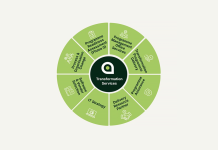Hannah Paterson, Principal Consultant at Step5, argues that procurement frameworks for IT may need external expertise for smooth implementation
In September 2020, the twelfth iteration of the G-Cloud framework was issued, demonstrating that the framework and its use continue to be fully endorsed by The Crown Commercial Service and the government departments it supports.
This latest release and the programmes of work across Westminster affirm that cloud, out-of-the-box and SaaS (Software as a Service) are very much the solutions of choice for government and the private sector. The benefits of SaaS support this trend and are incredibly attractive to all; the promise of reduced time to implement, operational cost reduction and increased scalability are hard to ignore.
Frameworks such as these provide government with an assured, transparent way of procuring services, and as they mature, the time to procure and the success of using them increases. However, they often miss two key factors – organisational readiness and supplier management – and require more input and expertise from public sector customers than their off-the-shelf functionality would suggest.
Organisational readiness
In order to achieve the savings and benefits of an out-of-the-box solution, the procuring organisation needs to adopt not adapt the solution to meet its needs. Effectively, your people, processes and suppliers need to change to work with the solution you have chosen, not the other way around, because any customisation starts to degrade the benefits. This is a significant load on the organisation and often requires a large business change transformation spanning business operating model, individual roles, business processes and engagement with third parties. This is a far cry from the out-of-the-box functionality intended.
Supplier management
Procuring cloud-based services often means having to manage a significant number of suppliers, which is compounded by the trend towards disaggregated service models. Although there are benefits with this approach such as increased competition and transparency, managing a larger set of suppliers in a complex ecosystem puts added pressure on the client organisation.
Ensuring all hand-offs, responsibilities and obligations are understood and delivered is a major undertaking, and the customer often ends up acting as referee between the different suppliers and managing areas of conflict. Also, this level of supplier management is often lacking in public sector organisations, particularly if they are moving from a large single supplier model.
Nor does the requirement for strong supplier management end once you have implemented the new system. There is an ongoing need to proactively manage your usage to ensure you are not over or under utilising the services.
These two key elements are often overlooked as they sit with the customer organisation and the assumption is that they can be done as part of the day job. In reality, they are a key deliverable, critical to the success of the programme, and getting them right requires considerable time and expertise.
A way forward
The Digital Outcome & Specialist 5 (DOS 5) agreement goes some way to meeting the key challenges of G-Cloud 12. Both Lot 1 and 2 support the organisation in its search for suitable specialists in digital.
Lot 1: Digital Outcomes is designed to engage service design and management specialists to support the organisation in agreeing the future operating model. Lot 2: Digital Specialists supports customers in finding suitable specialists with the necessary digital business change and transformation skills to support the organisation in its transition to a SaaS platform.
There is no disputing that SaaS and standard solutions are here to stay and, for government, the need to use the frameworks is not going anywhere. However, to truly realise the benefits, the services they support need to be treated as business solutions, not an IT widget that will fix all our woes. And, in many cases, that might mean bringing in external expertise to ensure their smooth implementation.











